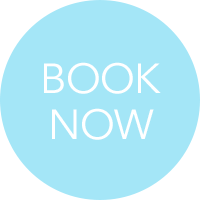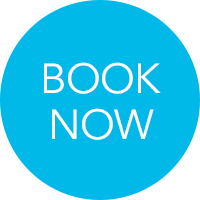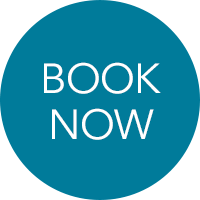5 Tips For Keeping Your New Year's Resolution (Spoiler: Tips Can Be Used Anytime!)
- Amherst Psychology
- Dec 30, 2022
- 6 min read
Ever wondered why New Year’s Resolution’s often don’t work out? Do you want something to change in 2023 but feel a bit nervous or down about it becoming just another big idea without much action? Psychologists are big believers in the potential for change, but we also know change isn’t easy! In this article, we’ll share 5 tips to give you a better shot at success in making the changes you want for yourself in the new year (or anytime throughout the year!).
We all know the drill. The new year rolls around and social media feeds start to fill with goal setting New Year New You kind of messages. We're going to delve into how to make changes in the new year, but first, let’s clarify something. There’s no need for a new you! In fact, a new you would not be you at all and would probably mean people missing out on loads of great things about you. So, let’s go with new year, same unique you. However, in the interest of personal growth (and we’re all about that) you might like to improve or change a few of your behaviours or habits.

Photo by Alexas Fotos
Before we look forward to the coming year, let’s take a quick look at the things you did well or felt good about in 2022. It doesn’t matter whether these wins were related to the resolutions you made at the start 2022. Go ahead and list 2 or 3 things you did in 2022 that you’re proud of or feel good about, no matter how small they seem. You might have been brave and applied for a new job (even if you didn’t get it), set boundaries within a challenging relationship, or learned a new skill. Maybe that indoor plant you bought during COVID lockdown is still alive because you managed to take care of it for a whole year – nice work!
The little list you just created is proof you can make changes; you can do new things; and you can change habits that aren’t working well for you. Take a few moments to consider what contributed to your success in making these changes. Why was this change important to you? What support did you have? Were they small steps in a better direction?
If, like most of us, you’ve struggled to follow through with new year’s resolutions, it’s probably not because you’re someone who can’t change, can’t be bothered, or didn’t have enough motivation. It’s more likely your approach to new year’s resolutions didn’t set you up for success.
What's a New Year’s Resolution?
In practical terms, a resolution is a decision. A New Year’s Resolution is a decision made heading into the start of a new year. Essentially, it’s a decision to do something differently (and often BIG) in the new year. For example:
In 2023, I’m going to get fit.
Next year, I’m going to be more organised.
In the new year, I’m going to drink less.
I’m going to spend more time with family and friends.
I'll spend less time on social media.
These all sound like great decisions or resolutions. Who doesn’t want to feel fitter, or enjoy more time with family and friends? The problem is that deciding to do something isn’t enough. The decision is important, but commitment and action are much more important when it comes to implementing changes. This is a key reason most New Year's Resolutions are almost forgotten within a few months - we need to back up our decision with some well thought out actions.
5 tips to help you nail your New Year’s Resolutions (or even better, Commitments)
1) Consider making a commitment instead of a resolution
This year, instead of making a new year’s resolution, try making a new year’s commitment. This commitment is a starting point, not the whole story. Make a commitment (to yourself) to take a specific action within a set timeframe. Using some of the above examples, instead of “In the new year, I’m going to drink less”, your commitment could be “This Wednesday on the way home from work, I’m going to buy only 1 bottle of wine” (instead of your usual 3 bottles purchased throughout the week), and instead of “In 2023, I’m going to get fit” your commitment could be “On Tuesday and Thursday morning at 6.45am, I’m going to walk outdoors for 15 minutes”.
You’ll notice these commitments involve specific timeframes and actions, so it’s easy to know if you’ve stuck to your commitment. If Wednesday morning rolls around and you haven’t been for a walk, it’s an opportunity to acknowledge you didn’t meet your commitment. You can then decide to renew your commitment and head out on Thursday morning.
2) Make it matter
What matters most to you? Think about how your newly minted commitment fits with your core values. Russ Harris, ACT therapist and author, writes “values are about desired, ongoing action. They describe HOW we want to live our life. They are not about accomplishing a specific goal or achieving a certain level of success”. To learn more about the difference between values and goals, you can check out Russ’ brief video on the topic here: https://www.youtube.com/watch?v=T-lRbuy4XtA.
If you value growth or learning, how does your new year’s commitment fit with this value? If you value authenticity, does your new year’s commitment reflect this? If you notice your commitment clashes or doesn’t align well with your values, rethink it. There’s probably something more important or meaningful you could commit to working on and if your new year's commitment is aligned with your values, you're more likely to make it happen.
3) Add in some accountability
If you’d like to supercharge your commitment, tell someone about it, or ask someone to join you. For example, you could ask a friend who already has a habit of walking/exercising regularly if you could join them. There’s a greater chance of sticking to a commitment if we’re accountable to someone else. If you can’t think of a friend of family member to support you with this, it could help to make a commitment to a class or a booking where you’ll be followed up if you don’t attend. For example, rather than teaching yourself guitar via YouTube, considering signing up for classes. Therapists or coaches can be great accountability partners. Apps can also add some accountability if you’re trying to change a behaviour that can be measured by your watch or phone (eg: steps, movement, hours of sleep, exercise).

Photo by RODNAE Productions
4) Make it small and specific
Make your initial commitment small. It just needs to be a workable starting point. Something that heads in the direction of your bigger, broader, end goal (of getting fitter, saving money, or drinking less). The smaller and more achievable it is, the more chance you’ll have of doing it. For example, saying I’ll go for a 15-minute walk on Tuesday and Thursday mornings is more helpful than saying I’ll go for a walk a few times per week (assuming you’ve thought about your schedule, and it works best for you to exercise on Tuesday and Thursday). Once you’ve mastered your initial commitment and it’s become part of your routine, you can add in another small, workable commitment.
5) Build on what you’ve got
We’re more successful at starting or changing habits if we connect them with existing behaviours or habits. In his bestselling book Atomic Habits, James Clear refers to this as Habit Stacking, in which you identify a habit you already do each day and stack the new/desired behaviour on top. For example, after taking off my work uniform, I’ll immediately get changed into my workout clothes; or, after dinner each night I will pack my lunch for the following day.
Bonus Tip!
Remember to throw in frequent doses of self-compassion. Remember, change isn’t easy. Forming new habits takes time and practice. We generally have more time for reflection over the festive season without work and other commitments in the mix, and we might overestimate our ability to make or maintain habit changes once we're back into the usual routines of life. Try not to get frustrated with yourself if you don’t follow through on your commitment one day or for a week. Instead, consider why you chose to make this specific new year’s commitment, decide whether to recommit, and act. You might have to do this quite a few times!
If you’d like some support or extra accountability in making valued changes in 2023, we’re here to help. Whether it’s single session therapy about a specific goal or challenge, affirming coaching for neurodivergent clients, or ongoing psychology or OT therapy support – we love sharing our knowledge and skills to help people live life fully! Not sure what support would be best for you? Give our reception team a call on (08) 9456 0411 and they’ll be happy to help you decide.







Comments